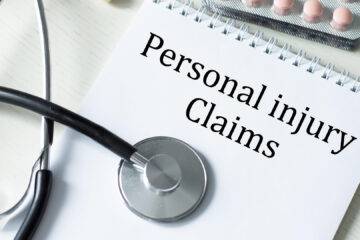Empowering Camp Lejeune Victims: Steps to Bolster Your Legal Case

If you’re one of the Camp Lejeune victims, navigating the path to justice can feel like an overwhelming ordeal. The challenges victims face are immense from health struggles to the legal intricacies of building a case.
Many, like you, are grappling with health issues stemming from exposure to harmful substances. The repercussions extend beyond the physical realm, entangling individuals in complex legal matters that can be daunting.
The Camp Lejeune victims’ plight underscores the seriousness of environmental contamination, with approximately one million individuals affected by tainted drinking water in North Carolina. In this article, we aim to provide valuable insights and actionable steps to help you strengthen your legal position.
Gather Comprehensive Exposure Background
Gathering a comprehensive exposure history is crucial for strengthening your Camp Lejeune case. Begin by meticulously documenting your time spent at the base, including specific locations and activities that could have heightened exposure risks. Actively seek out witnesses who can validate your experiences and provide additional insights.
According to TorHoerman Law, toxic substances contaminated Camp Lejeune’s water supplies, including unregulated levels of PCE, TCE, vinyl chloride, benzene, and about 70 other contaminants. This contamination has resulted in a range of diseases and health conditions.
A recent study published in Springer Nature revealed notable findings. It indicated that the peak of cancer risk occurred during the 1970s and 1980s. Furthermore, inhalation exposure was identified as the primary factor influencing overall cancer risk, followed by ingestion, with dermal absorption playing a minimal role. Integrating these findings into your exposure history bolsters the credibility of your case by aligning it with scientific evidence.
Collecting Extensive Medical Documentation
Building a robust medical record is essential for fortifying your Camp Lejeune case. Start by gathering detailed health records, particularly focusing on any illnesses associated with the base’s contaminated water. Obtain comprehensive files from both military and civilian healthcare providers, specifically highlighting your time spent at Camp Lejeune.
The US Department of Veterans Affairs (VA) delineates specific health conditions that qualify for legal recourse. These encompass various cancers, female infertility, miscarriage, and neurobehavioral effects, among others. Your medical documentation should distinctly outline ailments acknowledged by the VA, reinforcing your eligibility for pursuing rightful legal action.
Navigating Legal Channels with Precision
Mastering the legal landscape is crucial for bolstering your Camp Lejeune case. Start by enlisting the support of seasoned legal experts who are well-versed in cases involving water contamination. Participate actively in consultations to grasp the available legal avenues, ensuring clarity on potential strategies.
Establishing a strong legal footing is vital to secure compensation for losses resulting from government negligence. With adept legal representation, you can initiate lawsuits to pursue Camp Lejeune settlement amounts. These legal actions play a pivotal role in seeking justice and alleviating the hardships caused by the negligent actions of government officials.
Additionally, the Camp Lejeune settlement process aims to provide timely restitution to affected individuals. It involves comprehensive negotiations between legal representatives and relevant authorities to ensure fair compensation for victims. By navigating these legal channels effectively, you can strengthen your position and pursue rightful compensation for the harm endured.
Verify Accounts with Other Affected Individuals
Consider hosting community meetings or online forums for affected individuals to share experiences and provide support. These gatherings validate testimonies and foster solidarity among victims, empowering collective advocacy for their rights.
Additionally, leverage social media platforms and online support groups to connect with a broader network of individuals impacted by Camp Lejeune contamination. By amplifying your collective voice through digital channels, you can raise awareness about the issue and garner additional support for your cause.
Moreover, consider collaborating with advocacy organizations and legal aid clinics specializing in environmental justice to access resources and guidance in navigating the legal process. These entities often offer pro bono legal assistance and can provide valuable insights into effective strategies for pursuing Camp Lejeune compensation.
Establishing a Direct Link to Contaminated Origins
Establishing a clear link to contaminated sources is vital for bolstering your Camp Lejeune case. A recent US News report highlighted concerning findings. Veterans stationed at Camp Lejeune between 1975 and 1985 had a 20% higher risk of developing certain cancers compared to those in other locations.
This extensive US study compared cancer risk between exposed and non-exposed groups. By referencing this research, you establish a direct connection between your health issues and the hazardous conditions at the base. This evidence underscores the urgency for accountability and justice, highlighting the detrimental impact of the contaminated water on victims’ health.
In court, emphasizing the significant risk identified in the study strengthens your claim and emphasizes the importance of highlighting this connection. This evidence is pivotal in constructing a compelling case against the negligence contributing to victims’ health struggles.
Frequently Asked Questions
What Are the Key Steps in Strengthening a Camp Lejeune Legal Case?
Strengthening a Camp Lejeune case hinges on two things: evidence and legal expertise. Gather solid proof of residency or service at the base (1953-1987) for 30+ days. This can be military records or documentation of living on base. Additionally, secure medical records that link your illness to documented health effects of the contamination.
How Can Collaborating With Fellow Victims Benefit My Camp Lejeune Case?
Joining forces with other Camp Lejeune victims can be a strategic move. By combining residency proof, like military records, you create a stronger case for your collective presence at the base during the contamination period. Additionally, pooling medical records demonstrates a wider range of health issues potentially linked to the water. This can lead to a more compelling case and potentially better settlements for everyone involved.
What Role Does Recent Research Play in Bolstering the Legal Claims of Camp Lejeune Victims?
Recent research strengthens Camp Lejeune’s lawsuits by providing more evidence. Studies linking the contamination to specific illnesses (cancers, birth defects) solidify the connection between exposure and health problems. This bolsters legal claims and helps victims demonstrate how the contaminated water caused their suffering.
In summary, fortifying your position as a Camp Lejeune victim demands persistence and deliberate steps. Collecting thorough medical records, outlining your exposure timeline, and uniting with other victims lay a solid groundwork. Skillfully maneuvering legal avenues and substantiating links to contamination, supported by recent research, bolster your quest for justice.
Your collaborative endeavors not only strengthen your individual case but also advance the larger goal of accountability. By adhering to these actionable strategies, you equip yourself to navigate challenges and amplify the potency of your case.











